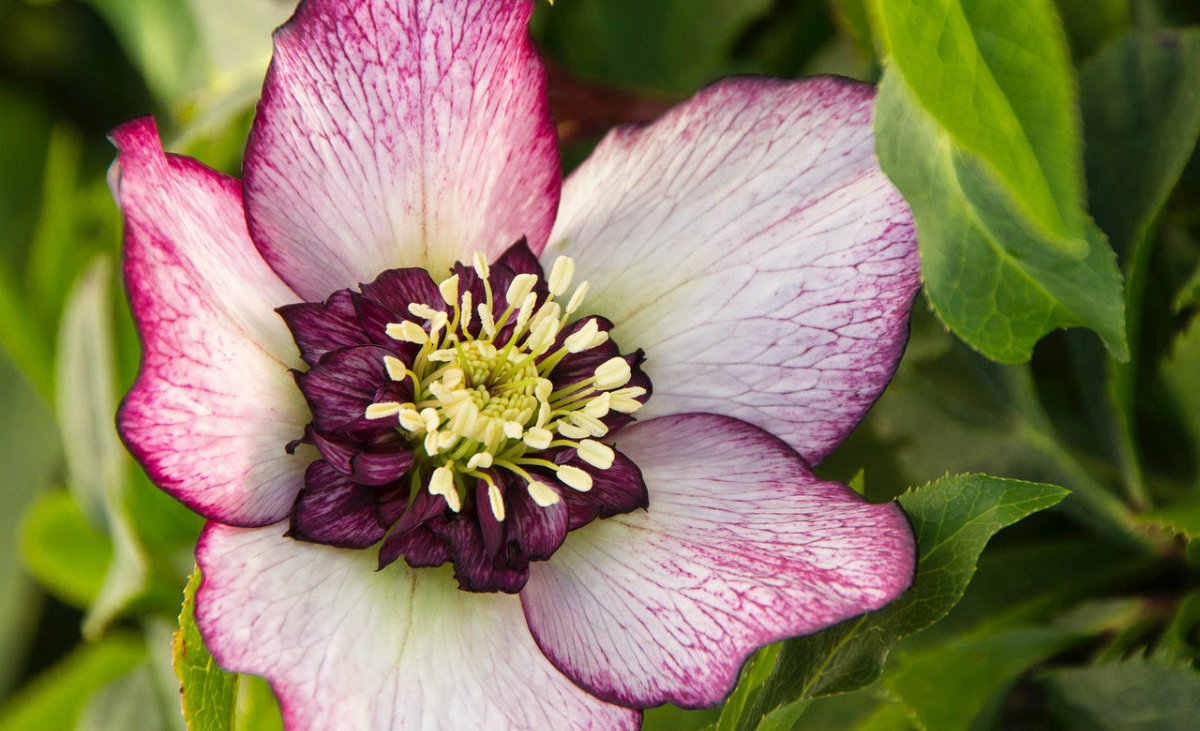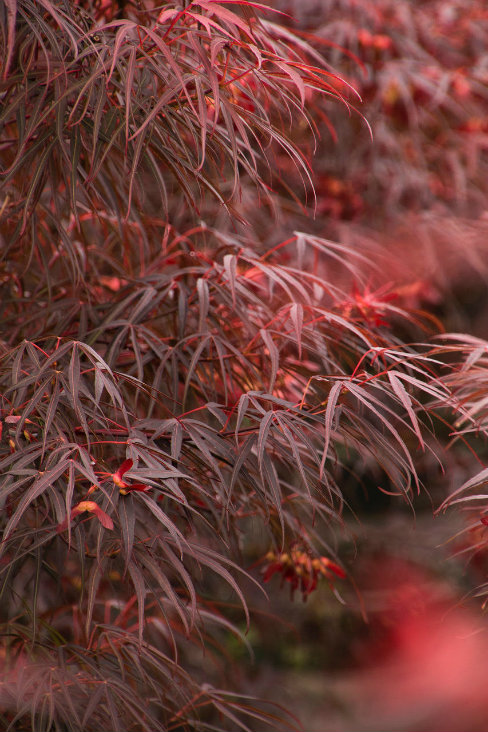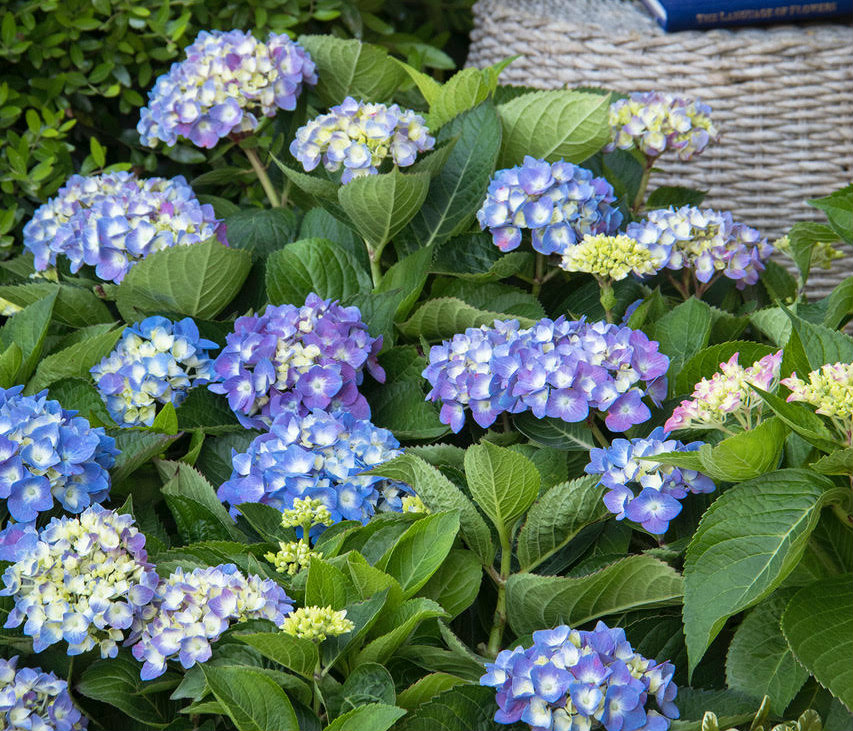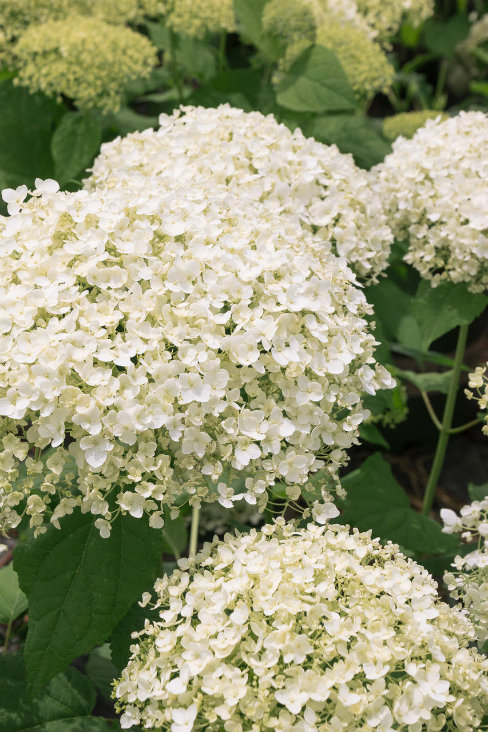Garden: A Trip to Monrovia nursery, where plants are potted with care
Our garden writer visits a renowned nursery and informs us why it matters where plants come from.

Our garden writer visits a renowned nursery and informs us why it matters where plants come from.
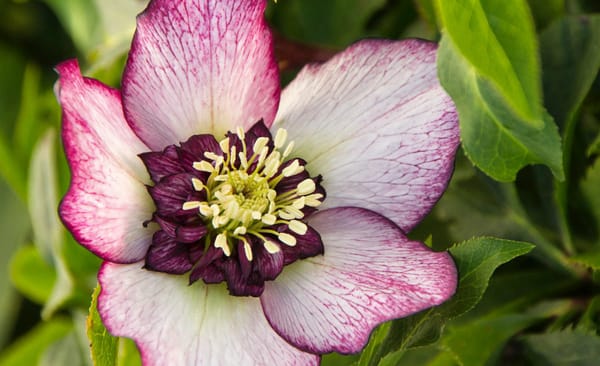
Cherry Blossom Lenten Rose, Helleborus x hyridus (All photos courtesy Monrovia Nursery)
Growing up in Oklahoma, I spent summers playing in my grandfather’s tree nursery when I was a kid. The sense memory of the unique sounds, sights and smells of that experience came back in a split second upon arrival at the Monrovia Nursery in Granby, Conn. I was invited to tour the facility last year and jumped at the chance. Over the years, I have visited several Monrovia Nurseries but all of them were out West, in Oregon and California, where the company began in 1926. I have always been impressed with their industry practices and the quality of product and now I have more confidence about the viability and longevity of plants grown in the zone where I work. Of the hundreds of varieties of ornamental and edible perennials, shrubs and trees grown on this 350-acre former tobacco farm acquired by Monrovia in 2014, Japanese maples and rhododendrons are their specialty.
Touring this facility is an education in large-scale Green practices they bring to bear on their production process. It takes millions of gallons of water to hydrate the plants every day during the growing season and they are able to recycle 75 percent or more of the runoff into ponds to be reclaimed. I loved seeing their huge mountains of organic mulch and different custom soil blends, designed to promote the healthiest root growth for different species. Their own compost is made on site through recycling biodegradable organic material. Very importantly, they have suspended all use of neonicotinoids (an insecticide toxic to bees and other pollinators). Integrated pest management practices are employed by use of beneficial insects and, only when absolutely necessary, the safest pest control methods available. They don’t use herbicides but control weeds with hand-pulling and mulch. These facts are of great interest to me, not only as a self-appointed steward of the earth, but because my clients want me to be as environmentally conscientious as I can be.
You can’t go to Monrovia in Granby to buy plants because they are wholesale only, but I am sure you have seen their distinctive dark green pots printed with the Monrovia name in your local garden center. Have you ever wondered what that meant? As consumers, we can either be very aware of branding or oblivious to it. Proven Winners, American Beauties, White Flower Farm, Terra Nova and others promote themselves just as labels like Chanel, Ralph Lauren and Gucci do. To some, a rose is a rose is a rose, but those in the know pay attention to branding in the garden world as much as they do in fashion.
We also learn through experience what works and what doesn’t, whether it is a shrub, a hand pruner, or a wheelbarrow, no matter whose name it bears. I sometimes find Monrovia plants to be more expensive than the same plant by another grower, but I know what is behind the pricing. I also find them to be quite reliable and definitely welcome the selection they offer. More than 4000 varieties of plants are grown throughout their network of nurseries. They even introduce exclusive varieties discovered by famous plant hunter Dan Hinkley.
There are a couple of ways to buy Monrovia plants. You can shop their catalog online and order plants directly, which will be delivered (shipping is free) to the Monrovia retailer of your choice. Some retailers in the Rural Intelligence region are: Millbrook Gardens, Millbrook, New York; Ward’s Nursery, Great Barrington, Mass.; New Milford Agway, New Milford, Conn.; and various Lowe's locations. You can also visit Monrovia's website and put in your zip code to find the nearest retailer.
